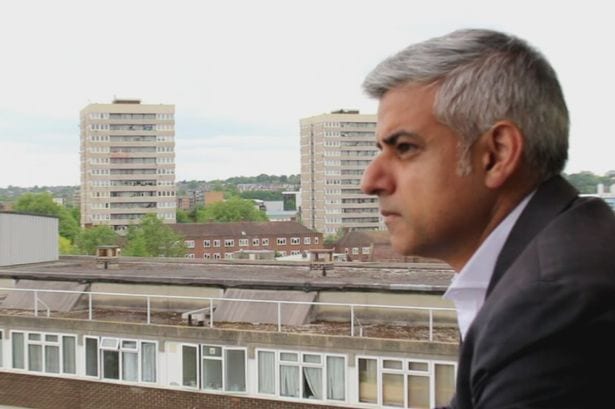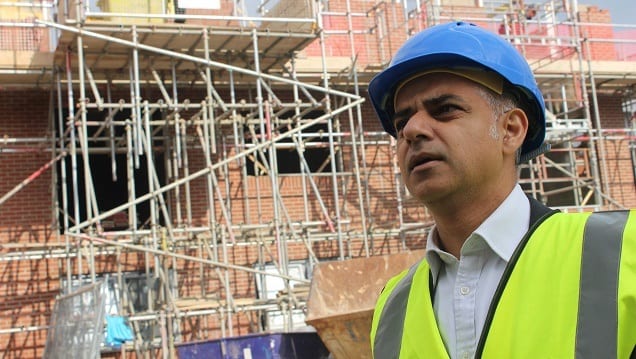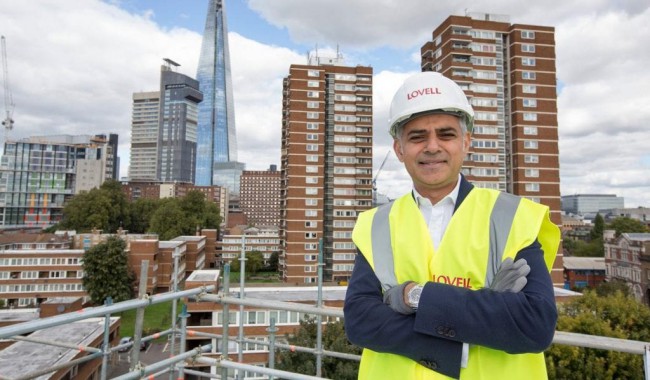As most of you will know, the London Mayoral Elections were last month. The 9th June therefore marks the end of the first month that Sadiq Khan has been the London Mayor. After all the hype and build up the election has died down, just what exactly has been done and what has Sadiq achieved. As a London Managing Agent we need to keep up to date with not only the possible affect that a new Mayor can have on Landlords but also the Mayors housing strategy for new developments to see how the market as a whole evolves.
London Election Results Recap – just who is the new Mayor of London?
So let’s recap the election quickly. The London Mayoral elections were a close run contest with three main contenders. Sadiq Khan (Labour Party), Zac Goldsmith (Conservative Party) and Sian Berry (Green Party). Voting took place on the 5th May 2016 across London with the final results coming early on May 6th, 12.30am to be precise (there were issues with dodgy votes and misreading’s but we won’t go into all that).
There are two rounds of voting with 1 candidate being voted out of the race after the first round. The results were as follows:
As you can see, Sian Berry was voted out by majority after the first round and Sadiq Khan went on to win rounds 1 and 2 with a final winning margin of nearly 25% over Zac Goldsmith.
With a total number of votes being 2,304,757. That equates to only 27% of the total population of London that turned out to vote.
So the Labour candidate from the Tooting Constituency won the final vote and took up office on the 9th May to start putting into practice the key issues he used throughout his campaign which is exactly what we are looking at next.
So what did Sadiq Khan promise for the housing market?
One of the main points that was contested between the candidates was their stand on housing policy and strategy, evidently with Sadiq’s plans coming off more beneficial to the voters.
So what were the promises made?
February 2016:
Khan launched his campaign in February with housing being high on his list. From the outset, Khan promised to ‘all part-rent, part-buy homes bought on mayoral land would be sold to Londoners who had been renting in the capital for at least five years’
He also commited that ‘50% of new housing built on public land would be designated as affordable if elected’.
In terms of planning, Khan, like all other candidates said ‘they would aim to deliver 50,000 new homes in each year of their tenure and would work with relevant authorities to access public land for development’.
March 2016:
In March, Khan stepped up his campaign, delving down into the details of his London Mayoral Housing Strategy and how he plans to back up the promises made during February.
Khan made a clear statement in regards to affordable housing in March, stating that ‘affordable housing in individual developments could vary as long as the London-wide figure was 50 per cent’.
Taking a hard line on rogue landlords, Khan stated that he would challenge housing standards for Londons two million private renters. He even went as far as committing to creating a ‘database of landlords who had been successfully prosecuted for housing-related offences’.
March saw the Chancellors Budget announcement, giving Khan the perfect opportunity to review highlight his intentions and try to persuade the Chancellor to ‘devolve new powers to the capital to help double the number of homes built to more than 50,000 a year’.
April 2016:
With only one month before the election, Khan once again reaffirmed his housing pledges, clarifying not only what he would do but how he would achieve them.
During a debate Khan confirmed that he would make 2 main pledges, to introduce a London living rent for affordable tenants meaning they would pay no more than a third of their salary on rent. Secondly he confirmed he promised to give ‘first dibs’ to Londoners, stopping new developments from being sold overseas.
With the election edging closer, Khan evoked Londoners emotional spirit calling on their ‘Blitz Spirit’ and stating that the housing challenge was ‘the modern-day equivalent of creating the post-war NHS’.
So as we mentioned earlier, the election day came and Khan won with a majority vote, confirming him as the next London Mayor with his work on the housing challenge at the forefront of his Mayoral strategy.
What has the London Mayor done in his first 30 days for the housing market then?
9th May – 15th May:
This was very much ‘reaction week’ for the property industry, coming to terms with the new London Mayor as well as the housing challenge he faces and how he will tackle it.
Understandably, little proactive action was taken by Khan during this week. We assume your first week as London Mayor is very much getting to grips with the exiting Mayors paperwork so we can certainly forgive Khan for not making a big first impact during this time.
One decision he did make was to fast track TFL’s plans to ‘transform 300 acres of underused land into homes for Londoners’. This was a real statement of intent by the new Mayor of London.
16th May – 22nd May:
With the first week under his belt, Khan started to get his hands dirty, continuing his statements of intent for his housing strategy.
As Khan plans to quadruple affordable housing in London, he made a very public statement, targeting ‘greedy developers wishing to get maximum bang for their buck’ which clearly conflicts his own housing strategy.
Time also came for Khan to appoint his deputy mayor for housing, choosing executive councillor for housing in Islington, James Murray. Much to the dismay of a multitude of developers who voiced concerns over Murray’s appointment stating that he has previous form for blocking developments due to his requirements for high levels of affordable and social housing and having a ‘principle over reason’ attitude towards London developments.
With the handover well and truly complete from Boris Johnson to Sadiq Khan, Khan raised questions for Johnson, stating that his predecessor has ‘left the cupboard bare’ in regards to London’s affordable housing.
23rd May – 29th May:
‘The Tower’ was the main talking point for Khan this week, after an investigation confirmed that 60% of the flats are foreign-owned. This went some way to re-emphasising Khan’s original points that developers should be selling homes to Londoners and not foreign investors. He certainly came out swinging, stating on ITV ‘We should not be embarrassed about saying ‘our homes are homes’, not gold bricks for investors in the Middle East and Asia’.
During his first Mayors Questions however, he confirmed, contrary to his initial statements before he became Mayor, that he does not have any targets for the number of affordable homes and he wants instead to ensure developers build ‘building the right kind of homes’.
Khan was dealt a slight blow this week too, with Labour heavyweight Neale Coleman making the decision to leave his mayoral team. Rumours are that Khan was unwilling to commit a role for Coleman after the transition period which may have led to this departure.
30th May – 5th June:
With Khan making some important statements in his first three weeks of office, he continued to focus on the big issues he raised prior to the elections.
Khan made comments once again at his predecessor in regards to the Landlord Rental Standard scheme which data shows has not been all it was meant to be. Khan was noted as saying “I’ve got plans to take them on, but it’s very disappointing that little or no progress was made under the previous Mayor. It seems that Boris Johnson was asleep at the wheel and ignored repeated warnings from officials that his plans were not working.”
Khan visited private renters this week, using the publicity stunt to confirm that he will be getting to grips with the private rental sector. How he intends to do this is still to be seen however Khan has confirmed during Mayors Questions that “I have no plans to introduce rent controls or the powers to do so.”
Conclusion
So Khan has certainly made an impact in his first 30 days of office, re-emphasising his intentions with the fast tracking of developments as well as indicating areas that he will tackle in the coming months.
A lot of his strategy is yet to be understood and we wait to see how he will not only persuade developers to sell homes to Londoners but also ensure an average 50% affordable homes whilst still making it attractive for developers to build to target levels.
What do you all think?
Did you have any expectations that haven’t been met by our new London Mayor or would you have wanted to see a clearer statement of intent on a specific subject?
Let us know, we’d love to hear your thoughts!








